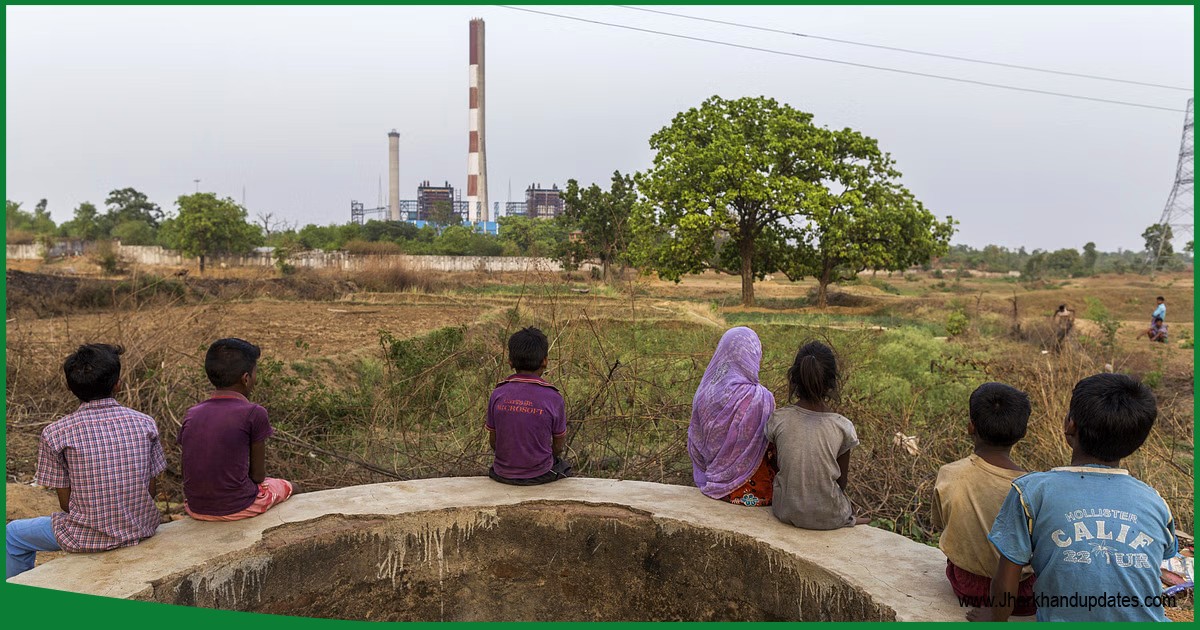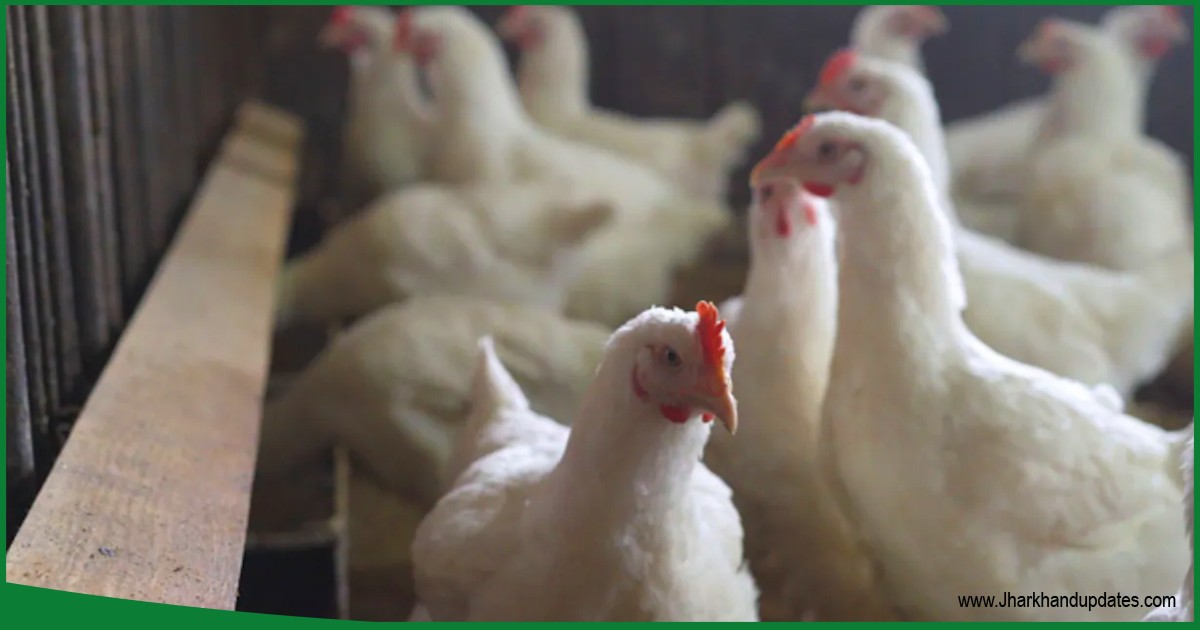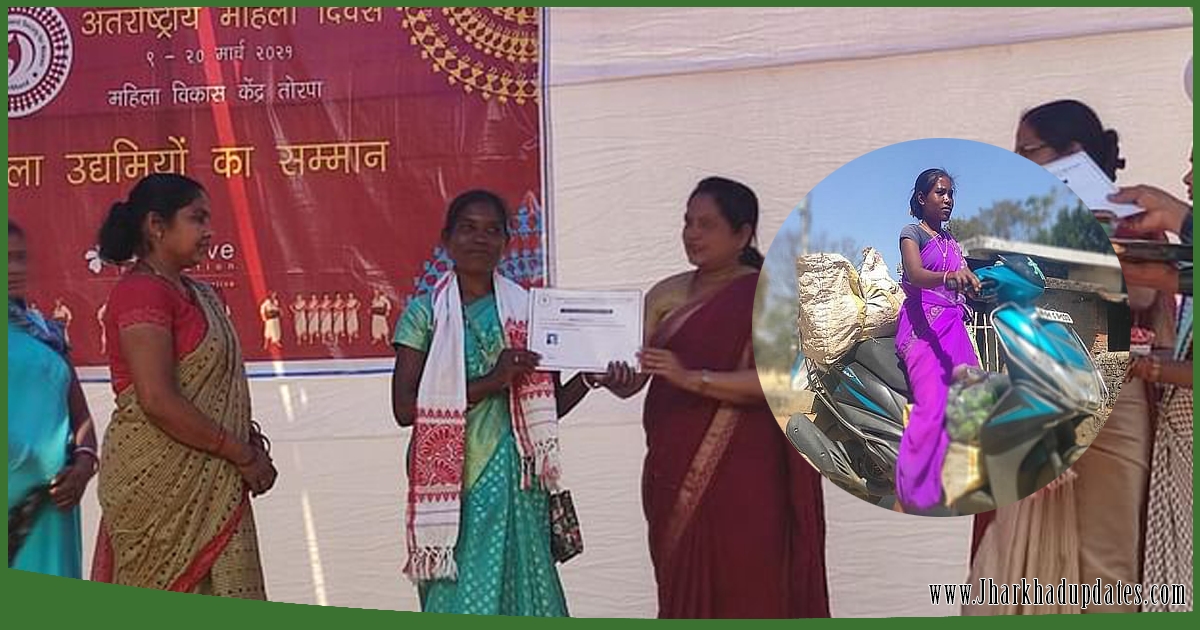In Jharkhand, there is a village called Patrayur, situated about 13 kilometers away from Torpa block, Khunti district. The villages surrounding Patrayur flourish with agricultural activities and are known for growing quality produce like cauliflower, cabbage, pumpkin, green beans, etc.
While Hindi is one of the main languages of the populace, they also speak Sadri, a language native to Jharkhand, Bihar, Chhattisgarh, and Odisha, as well as Mundari which is specific to the Munda and Bhumij tribes native to Jharkhand, Odisha, and West Bengal.
About 230 families live in the hamlet who mainly rely on agriculture for their livelihood. Some women are also engaged in small and micro-scale businesses to meet their household requirements. Among them lives, 25-year-old Cristina Herenj, a woman from the Munda tribe, living in a joint family of 10 with her children and her husband, Deepak Topno. While caring for the children, she also had to find another source of income to make ends meet. “The four women in my family joined hands and decided to start a small eatery in the local market in Patayur. We did this for around two days a week. But after the business took off, we rented a room in the Mahadev Toli,” said Christina.
In addition, the women expanded their business into a small hotel, which also offered groceries as well as other essentials. She is also part of an SHG called Ujala through which she was trained in entrepreneurship development and micro-business skills, a training course conducted by the Torpa Rural Development Society for Women (TRDSW) and the EdelGive Foundation. This helped her to manage the finances better and sustain the business. The women became the four main earning members of their families, and the business ran successfully for a couple of months.
However, in 2020, the pandemic struck and took a toll on their venture. Like in the urban sectors, the pandemic also affected the remote villages of the tribal community of Torpa and Rania blocks. Because of the life-threatening impact of Covid-19, the village had to adhere to government guidelines and follow the lockdown protocols. It resulted in the closure of Cristina’s micro-business. They found it very hard to make ends meet. “I have to ensure that everything in the household runs smoothly as I am bringing in income every month. I knew I had to find another source of income despite the lockdown since I also look after all the family members,” Christina says.
Even once the lockdown partially lifted, their business couldn’t pick up. But Christina didn’t give up and was determined to start another micro-business to earn something. They just managed to survive with the support of Ujala SHG, Edelgive Foundation, and TRSDW. So, with the help of TRSDW, she identified that the vegetable production in the surrounding villages was high. Cristina used this opportunity to not only help herself but also help the farmers to sell their produce. But due to the pandemic, they didn’t have enough money to start the business.
Christina said, “I received the support of my SHG with a sum of Rs 3,000 which helped me start the business. I was able to get my first supply of vegetables from nearby villages.” Initially, she sold the vegetables at the Torpa market between 8 AM to 11 AM, following the government guidelines for the operation of essential commodities. After the lockdown was relaxed, she rode through the villages on her scooter to sell the remaining vegetables at the Jalthanda market on Wednesdays, Dorma market on Fridays, and Jamar market on Sundays and Thursdays. By selling the vegetables, she earned roughly about Rs 15,000 a month. This helped her to support her family.
Meanwhile, Deepak, Cristina’s husband, is one of the farmers working in the village. Whenever Cristina found it hard to handle the vegetable business and household work, Deepak pitched in to support her and the family. In fact, in almost every tribal household where its members go out for work, the household work is divided so that there is no greater pressure on one single demographic. “My husband is very supportive and helps me with household chores. We divide all the work that needs to be done,” Christina added.
When asked about the hurdles she faced along the way, she said, “I take pride in my work, I work very hard to ensure that the quality I sell is good and I keep growing my customer base. The only thing is the Covid-19 pandemic, which had posed an issue amid the lockdown.”
Cristina said, “I will continue to build my business step by step, and work with the women and girls in my area to highlight the benefits of having a business. I also would like to have my shop someday.” Now she is able to take care of her family, her business and earns a lot more than the family used to before the lockdown. However, she doesn’t want to stop. She wishes to inspire more women to come forward to start their own businesses.









